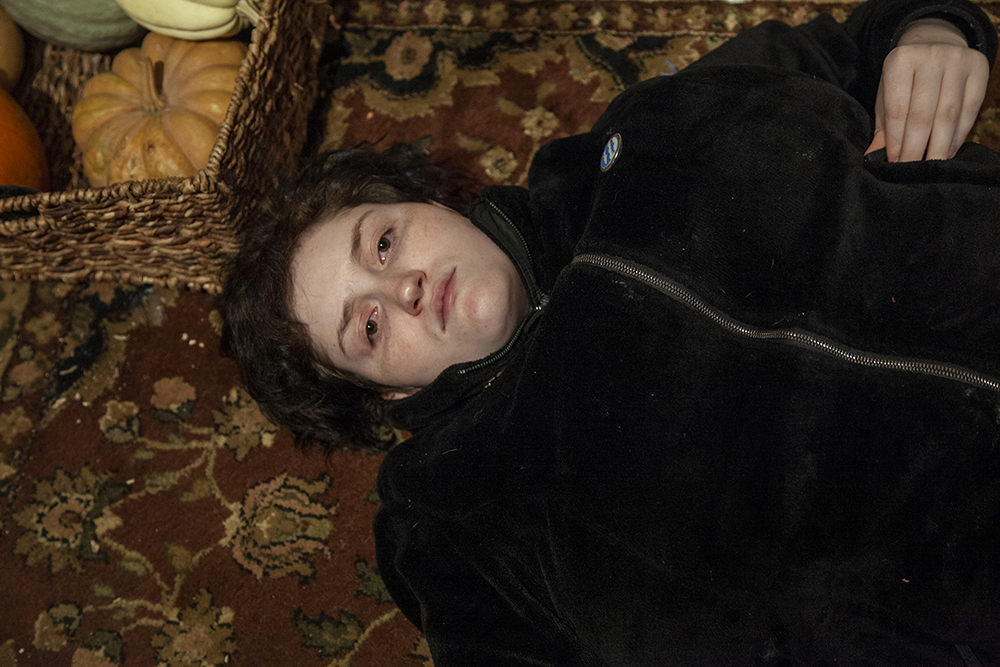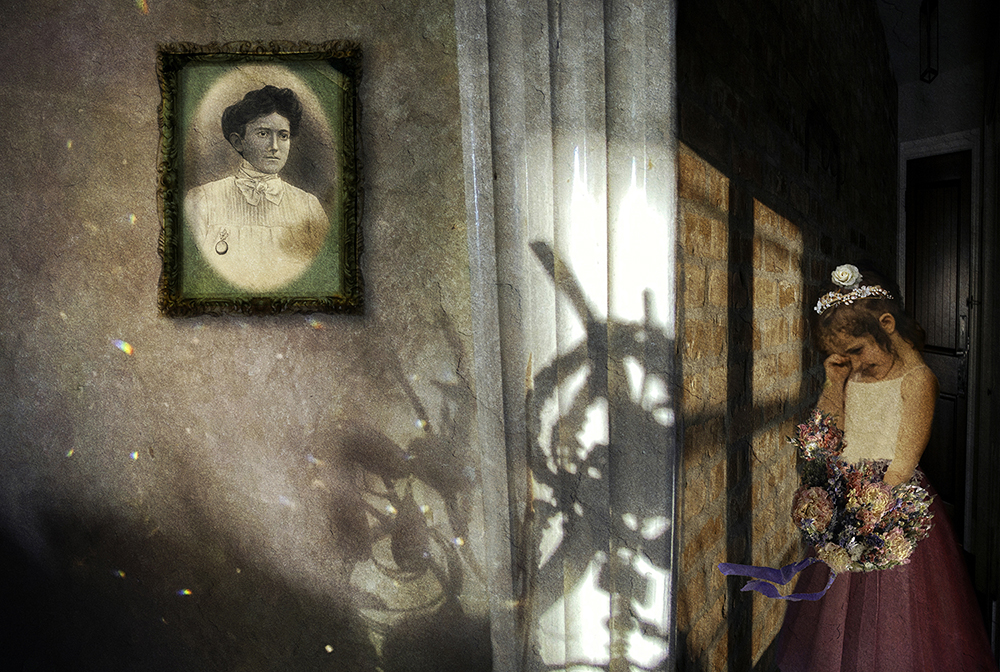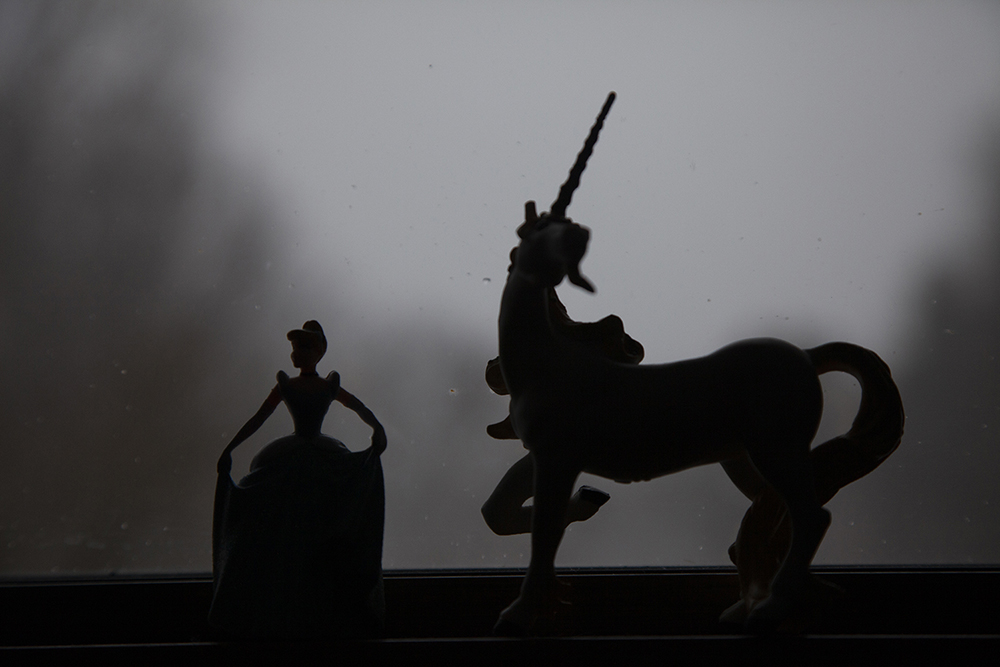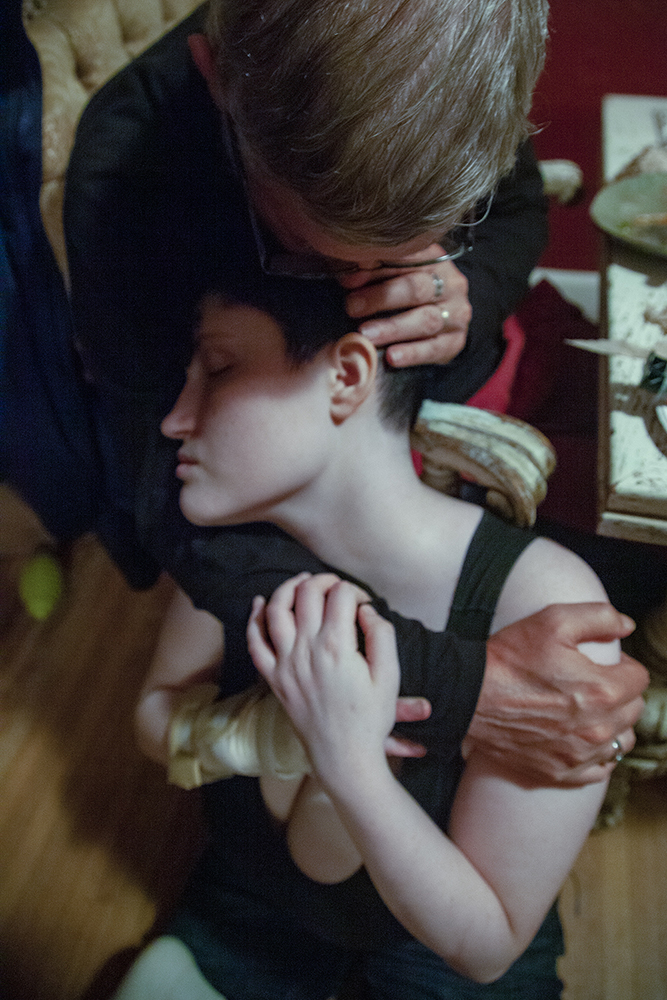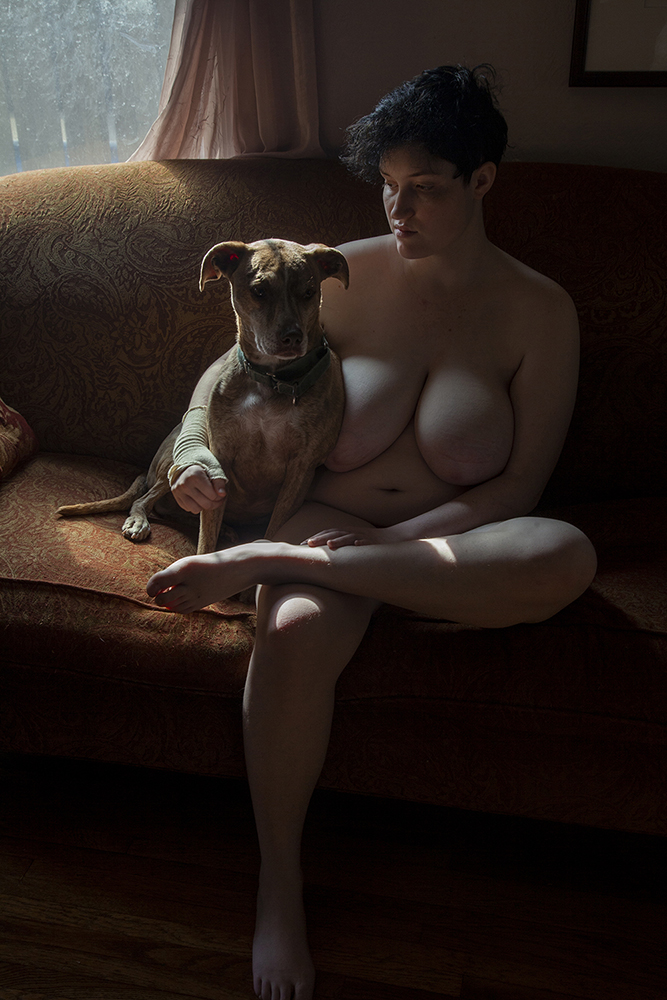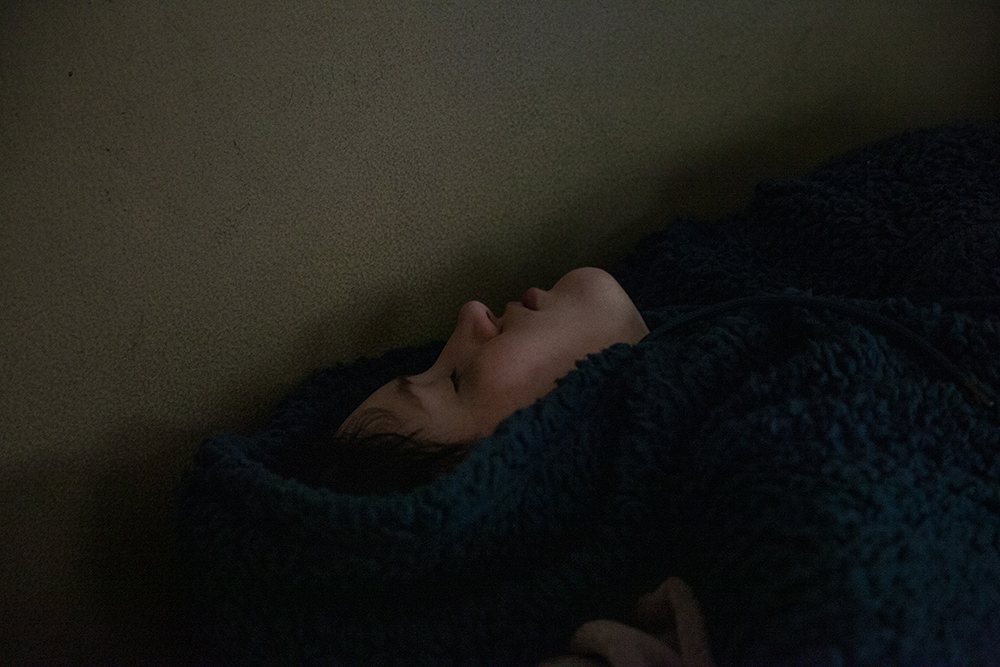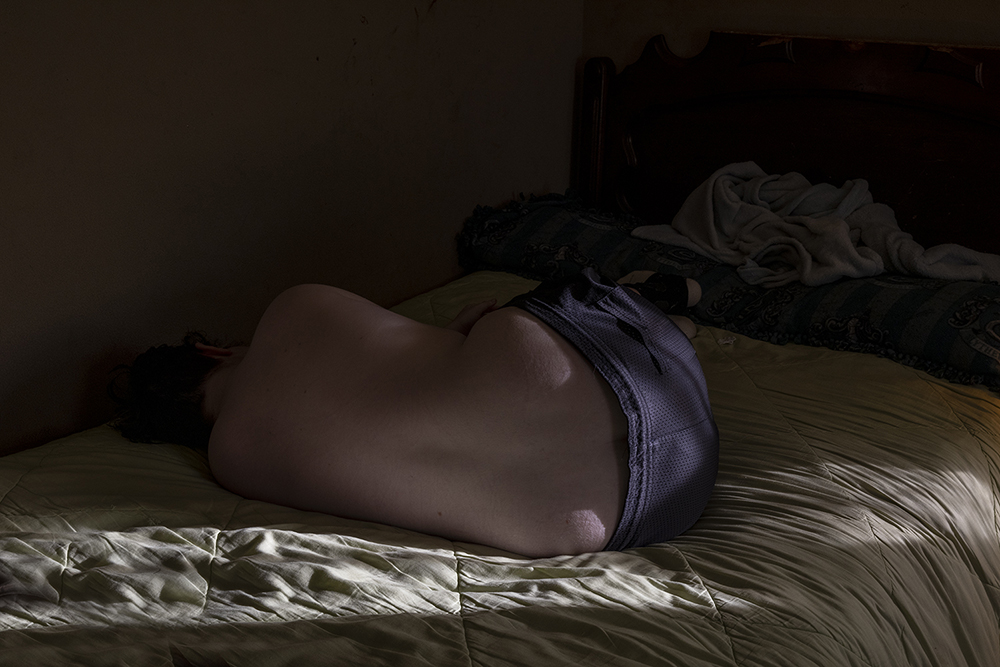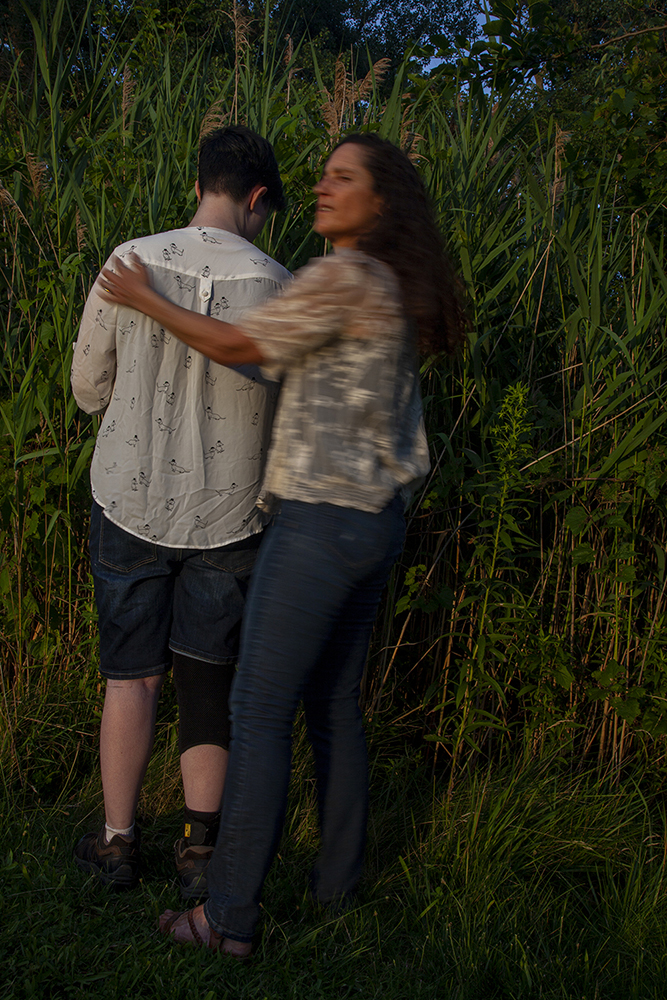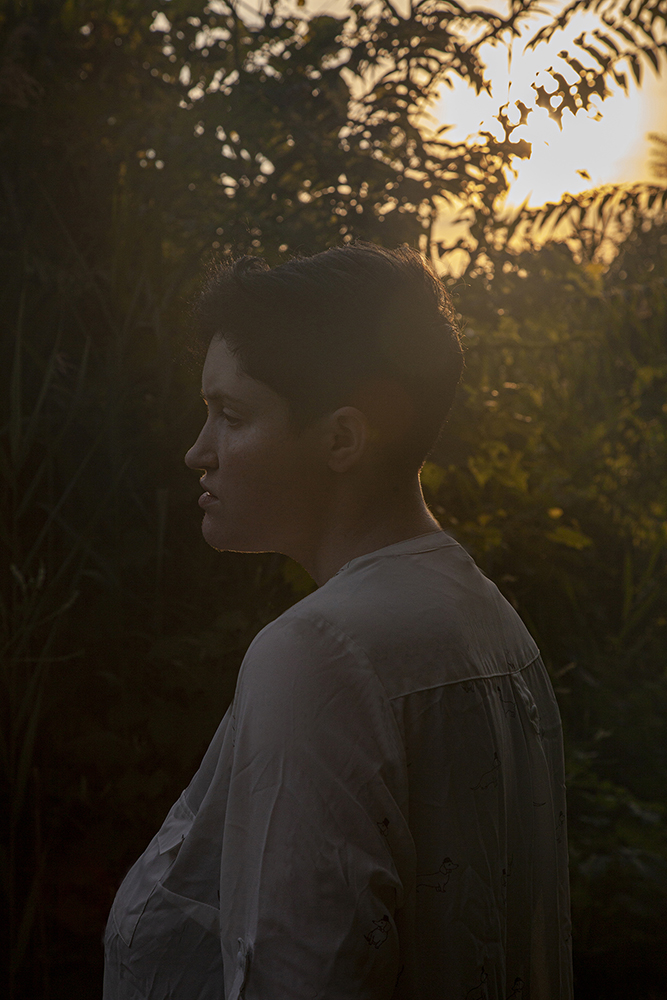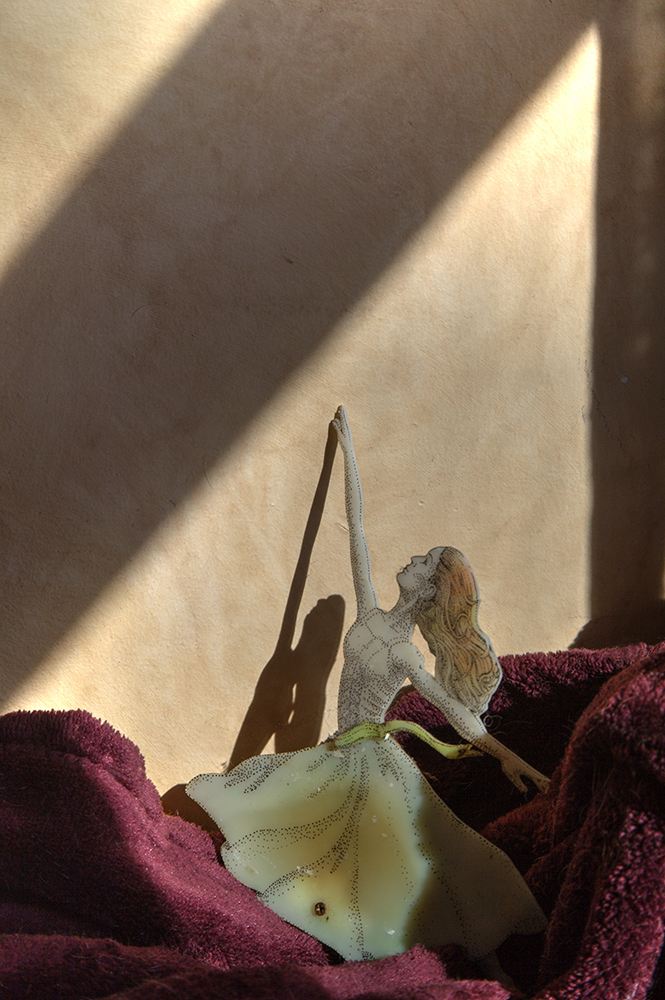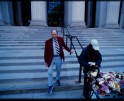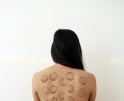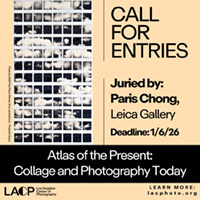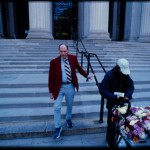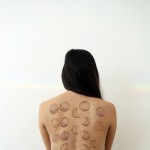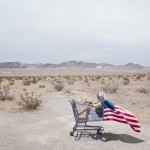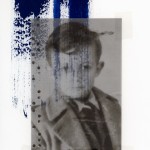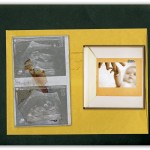Memory is a Verb: Dena Eber: Becoming Alex
Memory is a Verb: Exploring Time and Transience brings together twelve women photographic artists exploring the liminal space between time and transience. Represented in this body of work are the universal concepts of loss, mortality, and legacy, and the exploration of what inspires us to seek solace, and reexamine our histories; subsequently unearthing discoveries about ourselves, our relationships, and our place in the universe.
This week and next we are sharing projects from the exhibition, Memory is a Verb: Exploring Time and Transience, with interviews by the artists. Today we feature the work of Dena Elisabeth Eber who was interviewed by Jacqueline Walters. Eber’s artist talk on this project can be found on the Los Angeles Center of Photography’s YouTube Channel. Her project, Becoming Alex, examines the new terrain of understanding and accepting a child’s search for identity through gender transitions.
Memory, often regarded as fixed or reflective of reality, in this project actively functions as a transformative shape-shifter. The ongoing tension between two seeming opposites – objective fact and subjective perception – together shape a cohesive whole, creating something larger and more nuanced than just the sum of its parts. As new insight illuminates the past, this influences our experience of the present moment; which is itself slipping into the past at the instant we seek to define or quantify it. In this manner, time is elusive, elastic, bending back and over itself; perception comes full circle.
The project Memory is a Verb: Exploring Time and Transience began as the world was besieged with fear and anxiety during a pandemic, longing for a return to normalcy. Feeling a sense of loss, we craved connection to our past and to each other. The pandemic also offered a unique moment in which to interpret things differently. Beyond nostalgia, which selectively employs memory as a self-soothing balm, our exploration reconsidered how we view the past, and what is of purpose and significance, in light of our changed circumstances.
Dena Elisabeth Eber is an artist based in Northwest Ohio whose artistic endeavors include VE art works, photography, and interactive installations. Her latest work deals with the inspiration of written text that seeds personal narrative imagery dealing with contemporary issues. She has shown her work at numerous international and national exhibitions including Gallery D-ART for IV2020 International Symposium Digital Art, SIGGRAPH, Society for Photographic Educators, and the International Digital Media and Arts Association.
Dr. Eber is a Professor of Digital Arts at Bowling Green State University where she has taught since 1997. She earned her Ph.D. in Art and her MFA from the University of Georgia, her MS in Computer Science and her BS in Mathematics from Colorado State University.
Dena Eber will be presenting her project, “Becoming Alex” to the Society for Photographic Education:
Date / Time: Tuesday, November 8th, 2022, 7:00 pm EST
Follow Dena Eber on Instragram: @denaeber
Follow Memory is a Verb on Instagram: @memory_is_a_verb
Becoming Alex
In August of 2020, my daughter Margaret announced the new name and non-binary identity as Alex (no pronouns), and while I fully support this, I am learning who the new person is, learning to love who Alex is becoming, and considering my own evolution as a mother. My project, Becoming Alex unfolded over a year during which Alex and I came to understand what our transitions looked like and meant. As a young adult with autism spectrum disorder and countless physical ailments, Alex struggles to exist in a world that seems to run counter to how my child understands it. Along with the gender transition, Alex came into an awareness as an asexual (ace) adult, and this portfolio reflects the search for all of these identities. Even after a year of growth, Alex and I are still learning to navigate our relationship, define our roles, and how to claim our place in contemporary society.
Unlike other work about this subject, my portfolio not only investigates Alex’s identity, but also how a mother transitions with her transgender child. For eight to ten years, I have mentored and supported similar young adults, but this time, I am the mother. Instead of talking about boyfriends and how to keep from getting pregnant, I talk with Alex about things like figuring out pronouns, sexuality for ace people and how they can conceive children, to breast reduction and its implication for potential partners.
Alex’s journey represents a new freedom for Gen Z as they explore their gender and sexuality in ways that were not acceptable in the past. As they come of age, they will change our language, culture, and family structures. The larger project, which includes old and new pictures, FaceTime screen grabs, text screen grabs, and writings not only captures these discussions, but expresses some of what Alex and I individually experience.
This work examines our relationship through changing circumstances, supported by the unconditional love we hold for one another. As for my voice, both pain and joy come through as I mourn the loss of who I thought Alex would be and fall in love with the person that Alex is becoming. -Dena Eber
Jacqueline Walters: Given your background in math, computer science, and photography, what motivated you to choose photography? Or did photography choose you?
Dena Elisabeth Eber: I think I chose math, computer science and art, but given that we have to choose a direction in life, art came to the top. I say art because photography sent me on the art path, and it is what pulled me back to graduate school to study photography. It just so happens that the first rumblings of computers in art were on the scene at the same time, so it was a natural pull for me. In 1991, computers and art (photography) came together on the campus of the University of Georgia, where I was, and I started to figure out how to use computers to make art.
Jacqueline Walters: I am not clear on the significance of, or concept of “immersive worlds”. Please could you elaborate?
Dena Elisabeth Eber: By an immersive world, or an immersive environment (today known as virtual reality), I mean a computer simulated environment that completely takes over at least two senses, ideally three, normally at least sight and sound. The graphics are real time 3D and the sound is spatial. This means that wherever you look, up or down, left or right, you only see the simulated digital space and the worlds are created with 3D graphics. Things that are faraway look smaller and get bigger as you approach. The same with sound, as you get closer, it gets louder. Ideally, the environments include haptics (force feedback). When I was creating these worlds, you needed access to an SGI Onyx Reality Engine ($500,000 back in the 90’s), some sort of headset, and some kind of tracker to sense the position of your head (yaw, pitch, and roll) and your place in the space. We wrote these worlds in routines based on the C programming language, and the scripting language was called “Simple Virtual Environments,” or SVE, a language produced at the GVU center at Georgia Tech. Today you can buy a home system like the Oculus Quest 2 (for $299) and a PC ready system that will cost about $1500, give or take a bit. This PC could be your home computer. It is mostly used for gaming these days, so many people have VR in their living rooms. If you want to design your own 3D world, many artists import their 3D worlds into programs such as Unity. In short, it is cheaper and simpler today.
Jacqueline Walters: You mentioned Cindy Sherman, and her “performance art with its feminist undertones”, as someone who has directly influenced your work. Could you point to a specific example in your work of her influence?
Dena Elisabeth Eber: In just about every project I make, I get in front of the camera to perform some of the ideas in the work. It is empowering in that it allows me to tell the story how I want to portray it. In “Becoming Alex,” it was mostly about Alex, but I got in front of the camera a few times to express our relationship. I am thinking of the image where I perform the protection that I feel for Alex. In Passage, I lay on my parent’s bed in the shadows to access the memories of when I cuddled there as a child, or I hide in the closet to represent the ghosts in the wall. In my most recent work, Bere’shith, I am specifically performing the stages of “In the Beginning,” acting out death and renewal.
Jacqueline Walters: At what point did you know “Becoming Alex” should be a book?
Dena Elisabeth Eber: I knew that “Becoming Alex” would be a book from the very start. Our conversations, my poetry, our FaceTime conversations, and our texts were essential to the story of our evolving relationship. I feel that this complex relationship of elements is a natural fit for the book format.
Jacqueline Walters: I understand that family, relationships and your faith have played a significant role in your life. Could you discuss how this strong foundation helped you in your exploration of the changing dynamic of mother and child, as Margaret transitioned to Alex, and your evolution as a mother on this journey?
Dena Elisabeth Eber: My family and the love I have for my family has always come first in my life, so it is most comfortable for me to explore those relationships through my artwork. When (then) Margaret was born, It was the first time I had experienced such an intense love and sense of connection in my life, and I have not topped it since. Furthermore, people are people within my faith, there is no shame or sin to be who you are. This guides my feelings towards Alex’s experience and transition, and I would never want Alex to be anybody other than who they are. I don’t think it is possible for a mom to not imagine a future for their child, even if it is as simple as wanting their child to grow up happy and to give back to the world in some way. I fell in love with Margaret the second that (then) she was born, this was the being I imagined into the future. The future is here and Margaret is gone, so there is a process of falling in love with the new being, Alex. The love was always there, I “just” had to map it on to this new person. Of course, “just” was (and still is) a process.
Jacqueline Walters: How does the camera empower you in your work?
Dena Elisabeth Eber: The camera is a tool for me to tell stories and make new histories and points of view. In the past (all of history leading up to today), most histories and artworks were told by and created by white Christian males. We have lost so much of the work done by women, non-Christians and BIPOC people, but thankfully that is changing. With the camera in my hand, I can tell stories from the Jewish female single mom point of view, and I can just put it out there. This was not the case in the past. I have the power now to tell my story.
Jacqueline Walters: What is next for you?
Dena Elisabeth Eber: The next step is to get “Becoming Alex” published, so if anybody out there is interested, please contact me! But of course, I am also making new art and my current project is called “Bere’shith,” and it is the first Hebrew word in Genesis and means, “In the beginning.” The work grew out of coming through a rough two years that not only encompassed the pandemic, but also the death of my mom and of the conceptual loss of my girl, then realizing that none of it was really a loss, but rather a new beginning. This work borrows from my faith, and our tradition to celebrate the new year (Rosh Hashanah) by starting to read the Torah again, from the beginning, a new portion each week. The first words are, “Bere’shit,” and to me it represents cycles and generations. The words might be the same, but we change and grow year to year, and generation to generation, so the words take on new meanings and progress right alongside with us. Within the year, people die, people change, and people are born. My project “Bere’shith” is about exploring that renewal from the beginning. I use light as my rod and my camera as a guide to connect this life (Earth) to something much bigger than me (god?), hopefully resulting in imagery and writing that is universally spiritual and cleansing.
Posts on Lenscratch may not be reproduced without the permission of the Lenscratch staff and the photographer.
Recommended
-
Nathan Bolton in Conversation with Douglas BreaultJanuary 3rd, 2026
-
Andrew Lichtenstein: This Short Life: Photojournalism as Resistance and ConcernDecember 21st, 2025
-
Martin Stranka: All My StrangersDecember 14th, 2025
-
Interview with Maja Daniels: Gertrud, Natural Phenomena, and Alternative TimelinesNovember 16th, 2025

